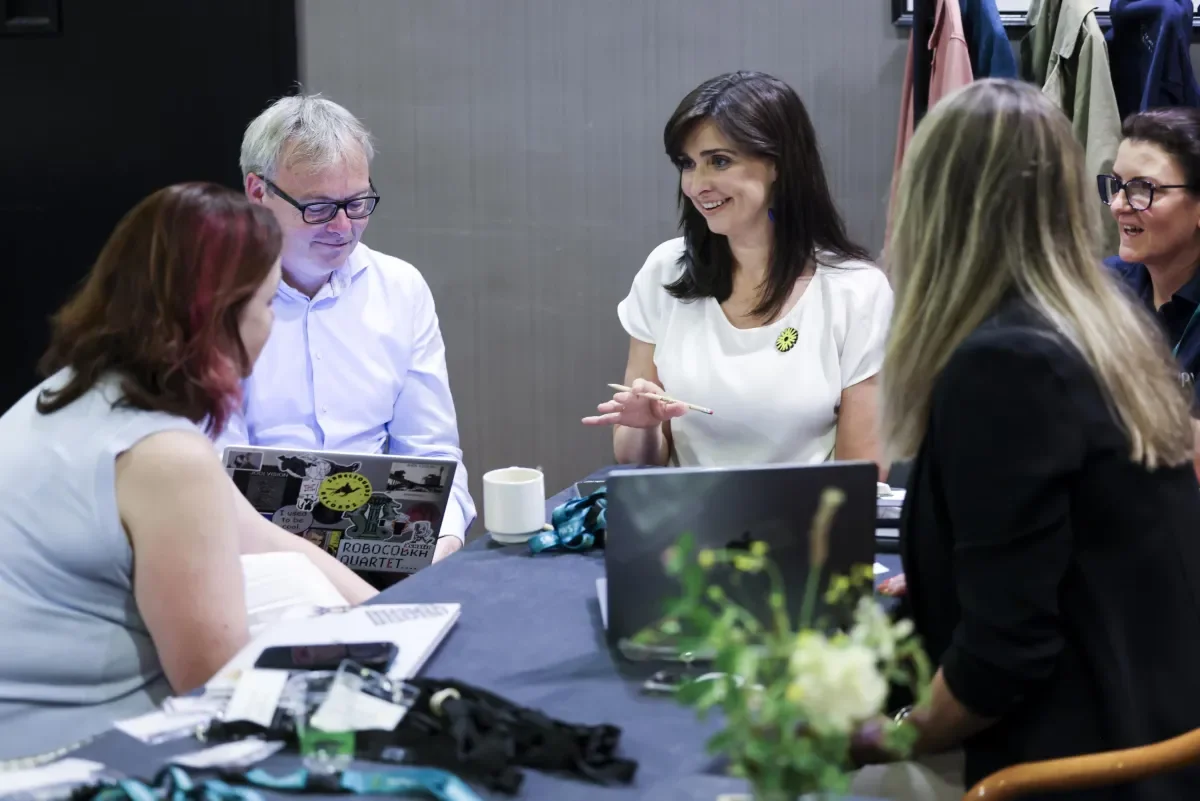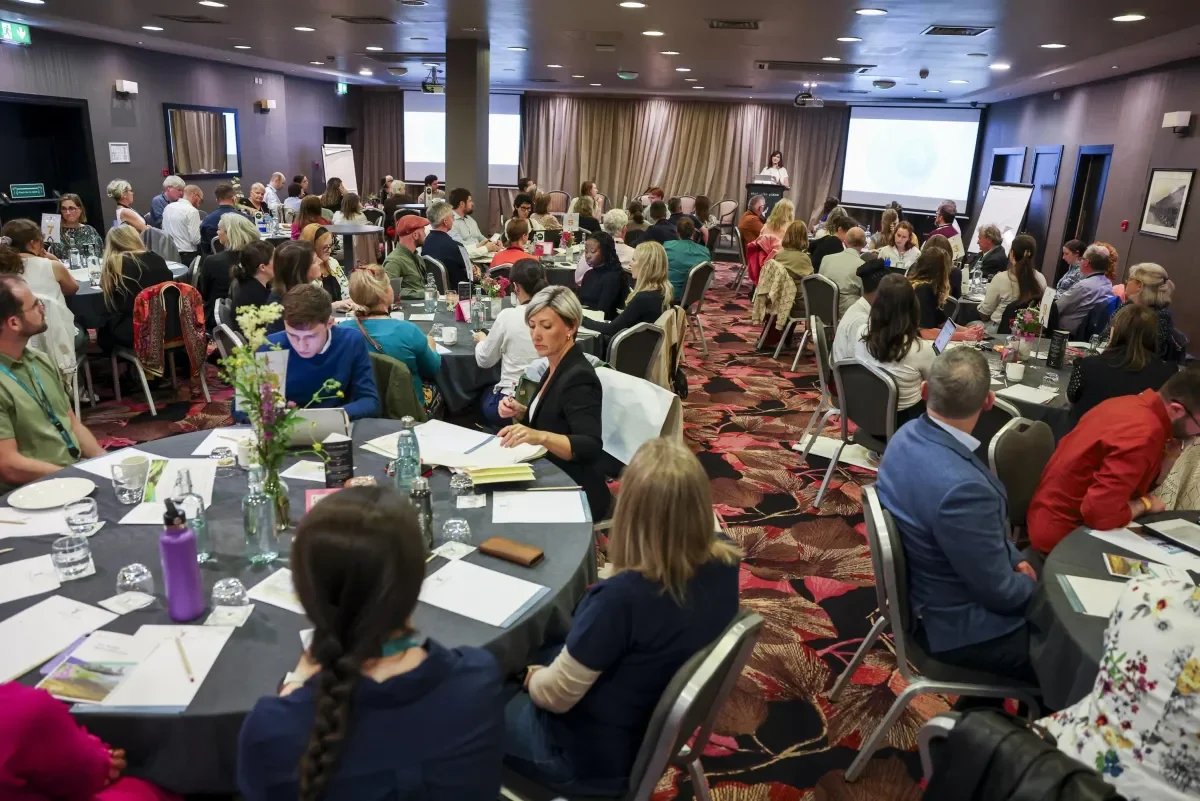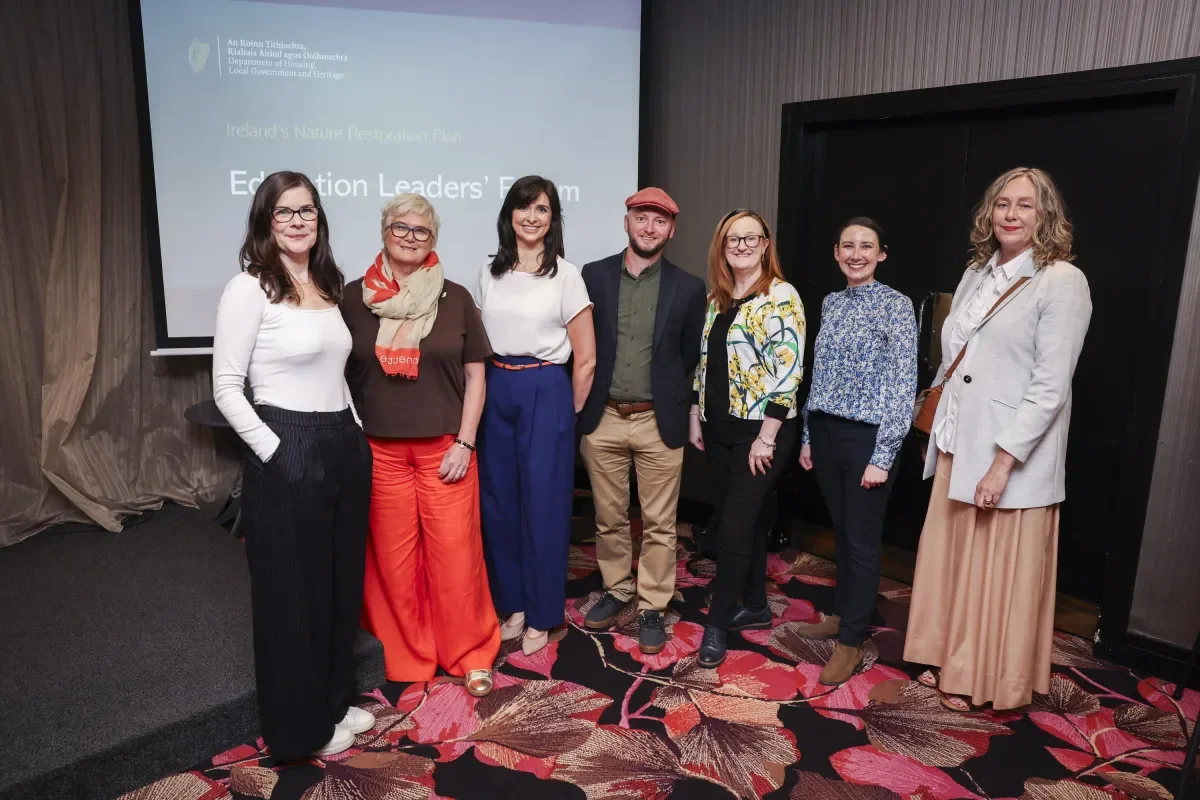

Education Leaders’ Forum on Nature Restoration Held
Led by two DCU academics Dr Aoibhinn Ní Shúilleabháin and Dr Natalie O'Neill, the forum included representatives from across the education sector, including Government representatives, colleagues from Solas, the NCCA, ETB, students, scientists and academics took part in round table dialogue and discussions designed to drive a coordinated, strategic approach to nature restoration and ensure long-term environmental and economic resilience.
The Forum convened key stakeholders to discuss the overarching trajectory of the national nature restoration plan and discuss how our education system, as a cornerstone of a functioning democracy and society, can support Ireland meeting its legally binding nature restoration targets to 2050. The discussions underscored the need for a curricular focus on nature, specifically on ecology and on non-animal living things, and for a broader understanding of how humans and the economy are part of and depend on nature in order to thrive and survive. Discussions also highlighted the urgent need for integrated policies and the alignment of restoration efforts with broader climate and biodiversity goals.

Dr Aoibhinn Ní Shúilleabháin, Chair of the Independent Advisory Group and Associate Professor in the DCU School of STEM Education, Innovation & Global Studies, said;
“Our education system is a fundamental pillar of society and one which we can be immensely proud of. Considering the long-term nature of this national plan, it is key that our education structures are set to continue to prepare learners of all ages for the environmental challenges of the future and to support them in being critical, informed, engaged citizens. Even meeting our short-term targets, it will be our young people who will be tasked with addressing the biodiversity problems that will exist in their future and it is our responsibility to outline that path now as part of a Whole of Government Whole of Society response.”
Dr Natalie O'Neill, Organising Committee Lead and Chair of Science and Mathematics Education in the DCU School of Policy and Practice said:
"This is the first forum of its kind on nature restoration relating to education, and its large attendance by educators, scientists and policymakers is indicative of the willingness for a collaborative approach to teaching about nature and the protection of nature in a time of biodiversity crisis. Formal education has a role to play in teaching young people that they are a part of nature rather than apart from nature and teachers must be supported in this endeavour by the wider educational, scientific and governmental agencies."
The series of Leaders’ Forum events is coordinated by the National Parks and Wildlife Service and serves as a platform for strategic dialogue, policy coordination, and collaboration of key stakeholders to ensure the effective restoration of ecosystems and the long-term resilience of natural and economic systems. This engagement will involve a number of meetings held in the coming months, two of which have now taken place, which will inform the recommendations of the Independent Advisory Committee.

